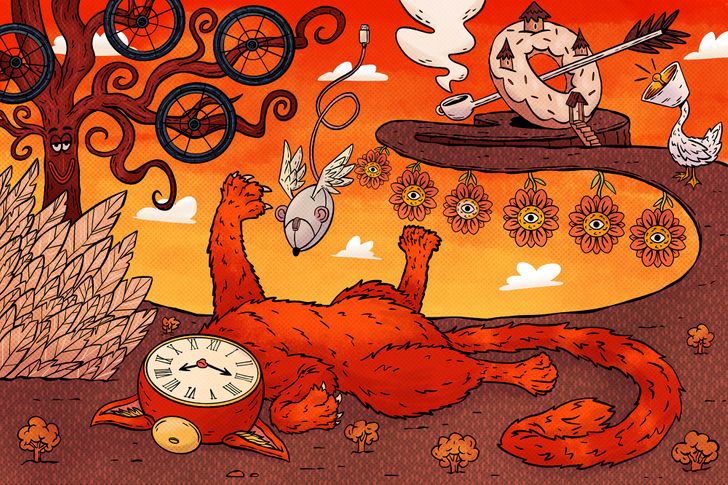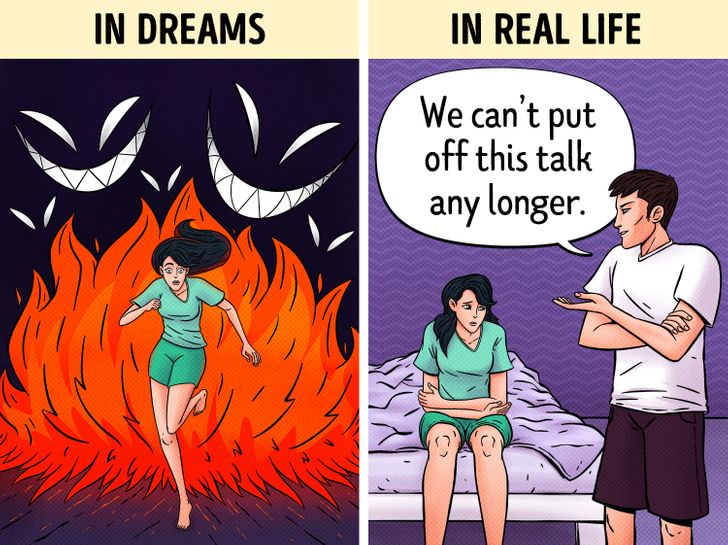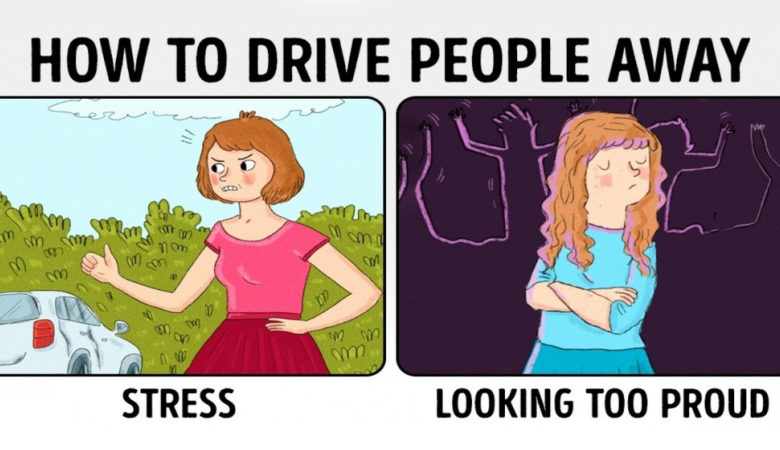Humans spend a third of their lives sleeping, which is a lot, isn’t it? And although dreams and their meanings have long attracted people’s interest, the science of dreams hasn’t gone very far, so there isn’t much data on it.
But thanks to the development of technology, it has become possible to study brain activity during sleep, and scientists and psychologists from around the world continue to share their results, slowly opening the curtains to an unknown and increasingly interesting subject.
We, and perhaps you too, have had at least one dream that stayed in our minds for a long time, without understanding its meaning. Today we are going to tell you what we have learned about nightmares and strange dreams we have.
Why Do We Have Weird Dreams?

Perhaps each of us has a story about a dream in which strange things were happening that seemed totally pointless after waking up. If you are curious as to why this is happening, there are several explanations.
Each person has their own unique dreams because people experience a variety of emotions and events every day. When you fall asleep, your brain continues to work hard, distributing moments in short and long-term memory.
Compare events that happened recently with those that happened a long time ago. This is why you can see things from your childhood, like playing with an old pet in a new place like the one you currently live in.
It all happens during the stage of rapid eye movement sleep, which lasts 10-20 minutes and repeats several times throughout the night.
This phase is also known as “paradoxical sleep,” which got its name because of the physiological similarities to a person’s waking state.
It is at this stage that all parts of the brain are activated, except the one responsible for logic. In addition, the concentration of serotonin and norepinephrine, neurotransmitters responsible for logic and attention, decreases during sleep.
Therefore, it is not surprising that our dreams lose any sober sense of normality. We realized that everything we just saw happened in our dreams only after we woke up.
Why Do We Have Nightmares?

What about nightmares? Why do we see apocalypse and zombies, we are haunted and other not so pleasant scenarios in our dreams? Swiss and American scientists carried out an experiment in which they managed to find the answer to these questions.
In their opinion, it is a kind of nervous system training, which helps the person cope with negative emotions in real life. In their article, the scientists write that the emotions we feel in dreams help us resolve emotional pressure and prepare a person for possible future stresses.
The scientists studied the activity of various parts of the brain during sleep using an electroencephalogram. 18 volunteers were awakened several times during the night and asked what dreams they were seeing and if those dreams were nightmares.
Thanks to their responses and analysis of brain activity, the researchers identified two areas of the brain that are responsible for nightmares. These are the insula and the midcingulate cortex.
Interesting as it may sound, these 2 parts of the brain are activated in the same situations when a person feels worried or scared in real life.
The insula is in charge of evaluating emotions and starts automatically as soon as the person feels anxiety. The middle cortex prepares a person for an appropriate response during the occurrence of a threat and controls how the person behaves when in danger.
In a later study, scientists found that those who had nightmares longer and more frequently reacted less severely to negative things in real life.
So far, it has become clear that the way our subconscious communicates with us and helps us solve problems is what worries us.
For example, seeing a chase in your dreams is often associated with a person’s unsolved problems in real life, according to scientists.
But, as we mentioned earlier, dreams have been very poorly studied and there are still many interesting ideas waiting to be discovered.
Have you ever had a strange dream that you couldn’t get out of your mind and that you can never forget? We will be happy to hear from you in the comments!









Leave a Reply